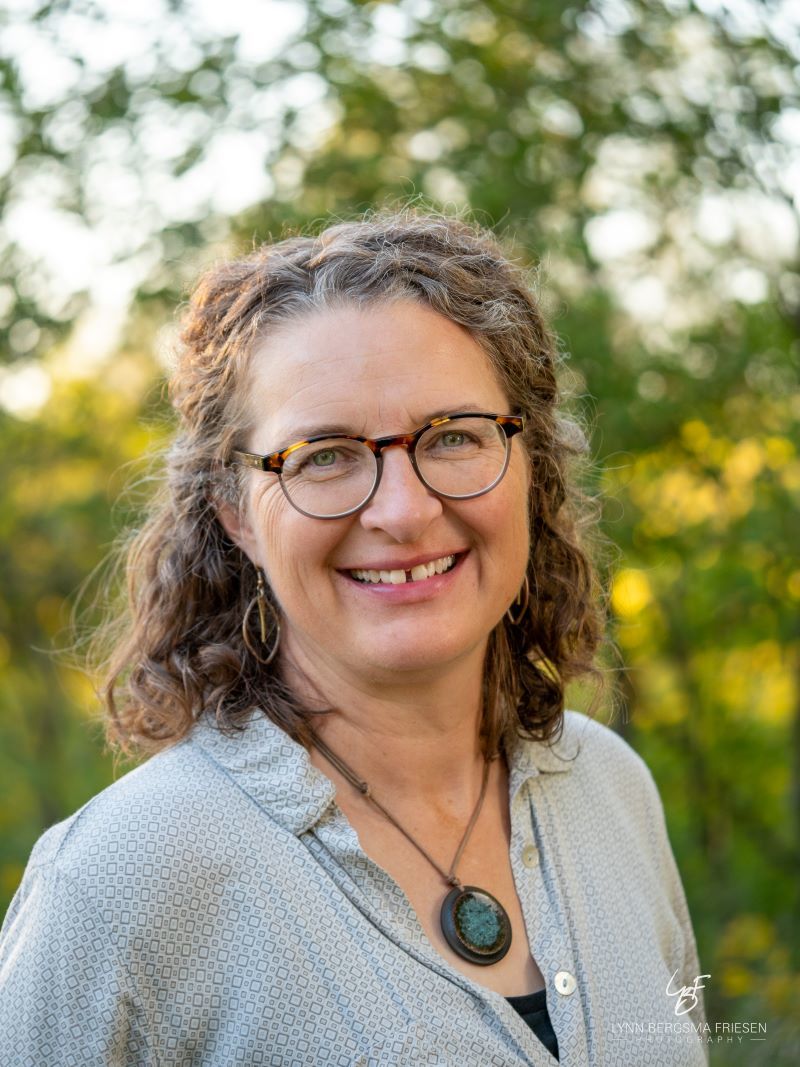February 8thGod's Reconciling Ministry for all Creation
 Wendy Janzen, MCEC Eco-Minister - Our shared home, planet Earth, is a miracle. I’ve known this intuitively since I was a child, growing up under the expansive skies of the Saskatchewan prairies. Stunning sunsets, stars, aurora borealis, long winter nights and long summer days with brilliantly clear skies, thunderstorms rolling in from a distance – all of this was a source of awe and a confirmation of the Psalmist’s words: the heavens are telling the glory of God! (Ps 19:1).
Wendy Janzen, MCEC Eco-Minister - Our shared home, planet Earth, is a miracle. I’ve known this intuitively since I was a child, growing up under the expansive skies of the Saskatchewan prairies. Stunning sunsets, stars, aurora borealis, long winter nights and long summer days with brilliantly clear skies, thunderstorms rolling in from a distance – all of this was a source of awe and a confirmation of the Psalmist’s words: the heavens are telling the glory of God! (Ps 19:1).
Similarly, the soil was alive and fertile, providing us with both garden produce and field crops. The broad North and South Saskatchewan Rivers defined the landscape and were a place of retreat for canoeing, fishing, swimming and wading. Campfires sparked our imaginations as stories and s’mores were shared in their warmth and light.
All the elements – air, earth, water and fire – nourished and shaped me and my life. I experienced these basic building blocks of life as miracles, as windows into God’s immanent presence and provision (and often reminders that I’m not in control!). As an adult my love for and connection with creation has deepened, and it has taught me many lessons about faith and life.
It is time to consider how God’s shalom extends to all creation.
Mennonite Church Eastern Canada has a new Identity Statement that grew out of our Creative Imagination process. It names three common purposes, the third of which is to “Embody God’s reconciling ministry for all creation.” For long enough now, we have read scripture as if God only cared about us as humans. It is time to consider how God’s shalom extends to all creation, and to seek God’s will on earth as it is in heaven.
We live in a time of multiple environmental crises. As North Americans, many of us have extracted, exploited, consumed and discarded without much real thought about the consequences to the land, water and air, let alone our plant and animal neighbours in the community of creation. We are being called as people of faith to listen to the cries of the Earth and to respond accordingly.
Eco-theology, eco-ministry, eco-mission – these are all terms that are relatively new, though threads can be traced throughout Christian history. The “eco” prefix comes from the Greek word oikos, meaning household, and reflects an ecological sense that we are all interconnected. They are all ways people of faith are responding to the brokenness and injustices in our world. They are a commitment to shalom for all creation, not only to humans.
May we be compelled by the love of Christ to respond with love in action.
The Fall 2022 issue of Sprout offers a picture of some of the ways that eco-ministry is already happening across MCEC: churches planting pollinator gardens or getting to know the fish in their watershed; global partners modeling sustainability; an individual committed to regenerative agriculture and reducing their reliance on fossil fuels; sharing resources; groups taking worship outdoors and learning to read the Bible through an ecological lens.
In our age of ecological crises, may we be compelled by the love of Christ, firstborn of all creation, to respond with love in action.